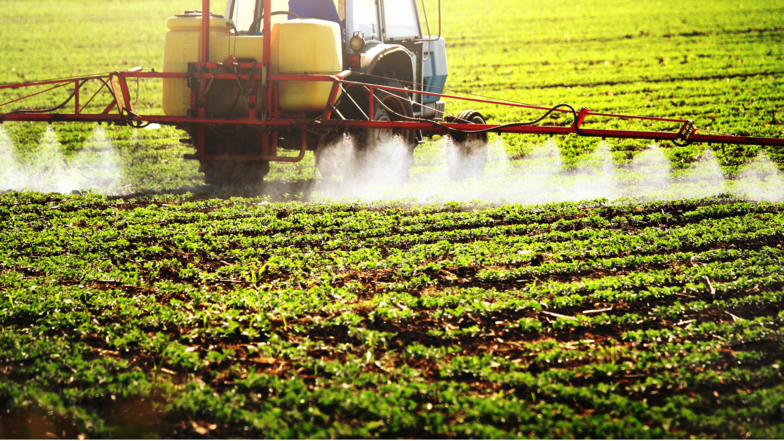Almost one in ten food samples tested in the EU contains residues of pesticides that are banned for use in European agriculture. This finding is based on the latest 2023 pesticide monitoring data from the European Food Safety Authority (EFSA). The contamination is particularly high in imported products like bananas, tea, rice, okra and spices – with illegal pesticides detected in up to 50 percent of tested samples.

The export of EU-banned pesticides by companies like Bayer, BASF and Biesterfeld has devastating consequences for the health of farm workers and the environment in the Global South. Furthermore, these pesticides are like a toxic boomerang that comes back to our plates in Europe. It is high time that the EU puts an end to this and protects the health of 450 million consumers.International Campaigns Director
Over 200 illegal Pesticides Found in Foods
According to EFSA, more than 580 different pesticide substances were found in food samples from across the EU, including over 200 that are currently banned within the EU. Many of these substances are classified as Highly Hazardous Pesticides (HHPs) by the UN's Food and Agriculture Organization (FAO) due to their cancer-causing or fertility-damaging properties. Despite their known risks, these chemicals are still produced by European companies and exported to other countries – from where they return to Europe via global food imports.
The highest contamination rates were found in foods imported from Rwanda, Cambodia, Madagascar, Paraguay and Bangladesh.
Among the most frequently detected banned pesticides were the insecticides Imidacloprid, Thiamethoxam/Clothianidin, Chlorpyrifos, Bifenthrin and the fungicides Carbendazim/Benomyl and Flutriafol. Many of these are classified as Highly Hazardous Pesticides (HHPs) by the UN's Food and Agriculture Organization (FAO) because they are considered carcinogenic, mutagenic, or toxic to reproduction. Despite their known risks, they are still being produced in the EU for export – and end up in European food through international trade.
Toxic double standard must end
These pesticides are like a toxic boomerang that comes back to our plates in Europe. It is high time that the EU puts an end to this and protects the health of 450 million consumers. To end this toxic double standard, two immediate steps must be taken:
- A full export ban on EU-banned pesticides
- Zero tolerance for their residues in imported food
An online petition launched by foodwatch in support of these demands has already been signed by around 70,000 people.
Stop the Toxic Trade!
Toxic pesticides on our plates: Pesticides banned in the EU are exported – only to return as residues in rice, bananas and raisins. A dangerous boomerang! The EU promised to stop this in 2020. But still no law. Urge the European Commission to move forward and ban export of these toxic chemicals.
EU still dragging its feet on export ban
After years of civil society pressure, the European Commission pledged in 2020 to introduce a legislative proposal banning the export of pesticides prohibited within the EU. However, no proposal has been published and the process has stalled in a never-ending impact assessment and consultation period. Meanwhile, hazardous substances banned in European agriculture continue to be produced by EU-based companies and exported to countries in the Global South — where they pose serious health risks to farm workers and the environment.
Sources and further information
- foodwatch report: Residues of non-EU-approved pesticides in food, 16/07/2025.
- foodwatch petition “Stop the toxic trade!”
- EU initiative: “Hazardous chemicals – prohibiting production for export of chemicals banned in the European Union”
- foodwatch background paper: Stop the Poison Boomerang, 2020.
- EFSA: The 2023 European Union report on pesticide residues in food, 14/05/2025
